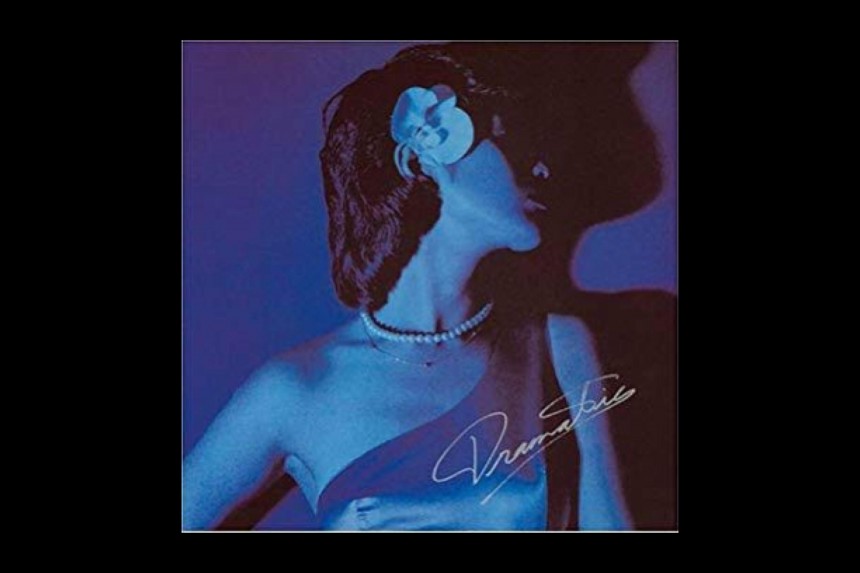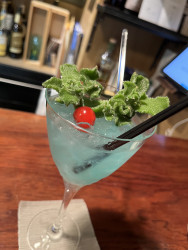
November 22, 2019
Dramatic
Fights, fury and heartbreak in Momoe Yamaguchi’s 1978 pop album
By Ian Martin
Singer Momoe Yamaguchi’s career is fascinating, spanning a period of rapid transition and evolution in the Japanese pop world. Despite retiring in 1980, she remains one of the country’s most beloved pop icons, and for good reason.
Abandoned by her deadbeat dad and brought up by a single mother in the naval port city of Yokosuka, Yamaguchi got her break in the entertainment industry in 1972, at the age of 13, via the TV talent contest “Star Tanjou” (A Star is Born). In doing so, she became a key figure in the rapid shift that took place in how pop singers were promoted — a transition from the postwar model of live touring and radio airplay to a new model, made possible by the widespread adoption of household TV sets through the 1960s, in which pop careers were nurtured in television studios.
Some of Yamaguchi’s early hits like “Aoi Kajitsu” (“Unripe Fruit”) and “Hitonatsu no Keiken” (“An Experience One Summer”) attracted controversy, weaving tales of teenage sexual desire around their gushingly romantic melodies. Though many of these early hits were great pop songs, Yamaguchi herself was looking to carve out a more mature career path, and as a solo star with an ever-growing list of hits to back her up, she was able to leverage an influence with her agency that the interchangable-by-design idols of the present day can only dream of. The result was a rapid shift toward ever more ambitious and mature works, including increasing experiments with the album form.
This was a time when, for a pop singer, the studio album was more of an afterthought to cash in on a couple of hit singles than a deeply considered and carefully crafted creative work in its own right. In the eight-year period from 1973 to the end of 1980, Yamaguchi released 22 studio albums, and a greatest hits compilation would serve as a tighter overview of her career than any individual one of them. Nevertheless, there is a trend towards greater coherence as those albums go on that goes hand-in-hand with Yamaguchi’s greater influence over her output.
The pivot seems to have come when she was able to recruit the husband-and-wife songwriting team of lyricist Yoko Aki and composer Ryodo Uzaki for her 1976 hit “Yokosuka Story,” which played off of the public’s familiarity regarding Yamaguchi’s hard-knock early life, and it’s this team that is flexing its full power on the 1978 album Dramatic.
As foreshadowed by the title, tales of fights, fury and heartbreak abound, frequently playing into Yamaguchi’s preferred role as a woman who’s just tired of dealing with all the bullshit in her life. “Last Song” is a tearjerker ballad from the point of view of a singer bidding farewell to a soon-to-be-married lover, reminiscing over the the times she’d see him in her audience with his fiance smiling along oblivious beside him. In “Zettai Zetsumei,” Yamaguchi is at the losing corner of another love triangle, but this time with the drama playing out in a coffee shop and primarily between the frustrated narrator and the indecisive man’s wet-blanket fiance, who makes a point of flashing the silver ring on her finger amid her shivering and sobs. In the end, the narrator storms out, presumably sick of these two pathetic losers, but still sees it as a defeat at the hands of her blubbering rival.
“Zettai Zetsumei” isn’t only remarkable for its lyrics, distilling a whirlwind of drama down into a single, tightly-written showdown between these two very different women. Musically, it’s an extremely unusual arrangement, maintaining a consistent time signature but introducing numerous disruptions to the song’s sense of pace, the guitar-heavy backing track frequently pulling up short and then unloading in a flurry. The result is a song that feels almost prog-rock in its execution, and one shot through with a sort of ferocity and aggression that Yamaguchi’s later, straighter attempt at a rock song, 1980’s “Rock’n’Roll Widow,” fell far short of achieving.
Elsewhere, the opening “Santa Maria no Atsui Kaze” riffs melodramatically on a Spanish theme. Meanwhile, “Aruonna… Aruhi” is a rare example of a mainstream Japanese pop song incorporating a reggae influence without utterly embarrassing itself — a trick it pulls off by at first playing to the contrast between the more minimalist reggae-influenced verse and the string-swept pop chorus, and gradually letting the two bleed together.
Perhaps most powerfully, though, Dramatic also includes one of Yamaguchi’s most beloved hits, “Playback Part 2.” It’s an odd inclusion in some ways, dropped at the end of the album and curiously separated on the sleeve’s track listing by a double line space from the preceding “Last Song,” which feels like it was originally intended the album closer in both sound and title. Originally a standalone single from the same year, “Playback Part 2” nevertheless fits neatly into the album’s atmosphere, acting as a sister track to “Zettai Zetsumei” with its jittery, sequencer-embroidered arrangement and lyrics that follow a woman motoring away with pop music blasting out of the car radio as she runs over the he-said, she-said of a fight with her man.
Yamaguchi was still only 19 when she recorded Dramatic, but it’s an album with more musical sophistication and lyrical bite than most pop acts manage in a lifetime.







